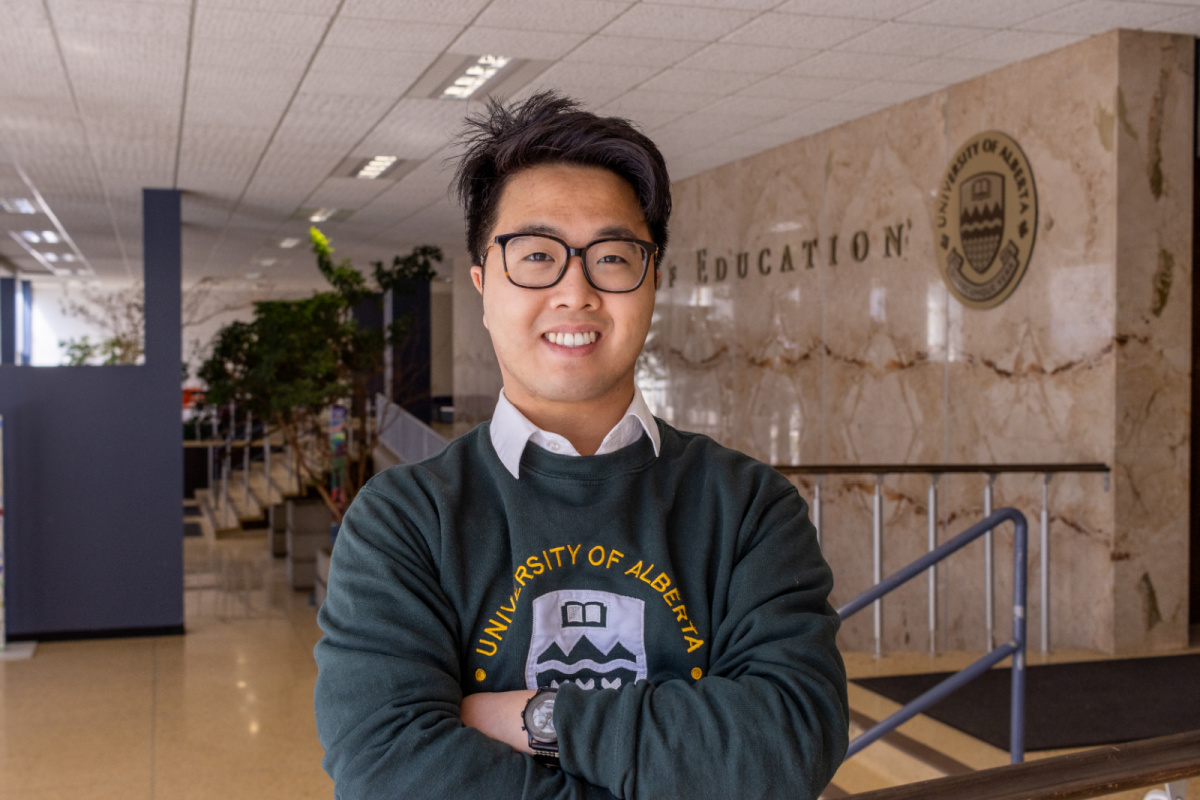Learning happens everywhere for education graduate
9 June 2023
 As he prepares to graduate with his Bachelor of Education degree, we asked Edward Tiet (pronouns: he/him), outgoing president of the Education Students’ Association, to reflect on his time as a student, his non-academic pursuits and his experiences with student leadership.
As he prepares to graduate with his Bachelor of Education degree, we asked Edward Tiet (pronouns: he/him), outgoing president of the Education Students’ Association, to reflect on his time as a student, his non-academic pursuits and his experiences with student leadership.
Why did you choose the U of A for your studies?
As I was deciding what I wanted to do after finishing high school I looked around for some options of programs and schools that were available. I eventually decided on the U of A since my sister Sophie was already attending and it was also close to home. I also heard about how prestigious the program was for the faculty of education here, so that further motivated me to come to the U of A.
What made you want to pursue your bachelor of education?
Initially, I was not sure what I wanted to take in post-secondary and it took me a lot of Grade 12 to figure out what I wanted to do. I started reflecting on my life on how there were a lot of influencing factors and figures that I looked up to. I thought about how I became the way I was, and I realized that throughout my entire K-12 life, it was always teachers that gave me good advice and guidance. Eventually, I took on a bachelor of education degree as my sister was doing her BEd, and I always wanted to help other people learn. I am also a big advocate of life-long learning and that if we learn something new every day, it will benefit us somehow, someway in the future. I also really like talking to new people whenever I get the chance to see where people come from and the new ideas that they bring. So I felt that education was the right route for me in university.
What are the non-academic activities you pursued during your degree?
I was involved in the Faculty as much as possible by volunteering on top of working a few part-time jobs simultaneously. Some of these activities included tutoring, volunteering with the Education Students’ Association and other organizations in the city, and Technologies in Education where I helped teach undergraduate students how to use the SMARTBoard and other educational technologies.
What attracted you to a student leadership role?
I thought about what my sister was doing at the time and I was heavily influenced by her to take on a role in student leadership. I also believe that having an active role in the community as an educator is crucial for everyone, so I ran for several executive positions within the Education Students’ Association. The connections that I created by working alongside other undergraduate students and with faculty members were also something that I was interested in, hearing new perspectives from everyone as everyone has something to contribute and finding new ways to spark change.
What do you plan to do now that you're graduating?
As I am soon approaching graduation, I am first planning on getting my professional portfolio and everything ready to go and applying wherever I can with my teachable subjects. I’ve had many thoughts about teaching abroad and I am currently looking into that as well. On top of that, I also have future plans on applying to graduate studies later on in my professional career regarding adolescent psychology as I could find ways to better serve and teach my students in all settings and to help advocate for those that can't.
What advice do you have for incoming Education students?
Try something new every day. Make sure that you’re learning something new every day. Make sure you find a good support system, like how I found the ESA. Get to know people. Get involved.
Spring convocation ceremonies for the Faculty of Education Class of 2023 take place on Thursday, June 15 at 10 a.m. (Elementary Education) and 3 p.m. (all other programs). For more information, visit the University of Alberta website.